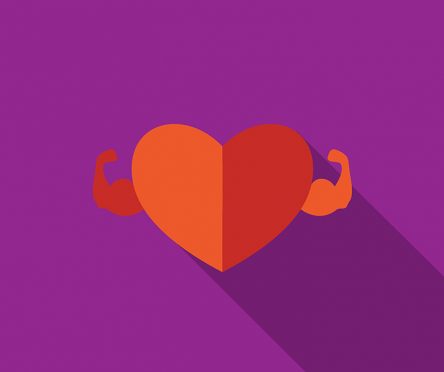You may brush off stress as no big deal — but your heart doesn’t.
When stress builds up, it can do more than ruin your mood. Over time, it raises your blood pressure, speeds your heart rate and increases your risk of a heart attack.
We asked Boskey Patel, DO, an interventional cardiologist with the Hartford HealthCare Heart & Vascular Institute, to explain how stress impacts your heart — and how to keep it healthy.
Virtual care - when and where you need it
Choose your preferred timeHow different types of stress strain your heart
Not all stress affects your body the same way.
Acute stress hits fast — like after a car accident, surgery, or sudden loss. Chronic stress, on the other hand, builds slowly. Over time, it traps your body in a cycle of inflammation and hormonal imbalance.
Poor sleep (especially untreated sleep apnea), a processed diet, smoking, and uncontrolled diabetes can all make chronic stress even more damaging.
“You can have a heart attack from stress alone – even without blocked arteries,” adds Dr. Patel. “It’s called ‘broken heart syndrome’ or Takotsubo cardiomyopathy. It’s a (usually temporary) weakening of the heart muscle, and we see it more often in women, especially those in caregiving or high-stress roles.”
> Related: What Heart Attacks Look Like in Women
How stress takes a toll on your heart
Chronic stress tends to cause more long-term damage than short bursts of acute stress — but in the moment, your heart still takes a hit.
“Adrenaline and cortisol are normal hormones your body needs to function,” says Dr. Patel. “But during intense stress, your body releases them in higher amounts. In excess, they can raise your heart rate, spike your blood pressure and make your blood more likely to clot – all of which can increase your risk of a heart attack.”
Red flags you shouldn’t ignore
We all shrug off stress until our body forces us to listen. The tricky part? The symptoms often masquerade as something else.
Dr. Patel says to pay attention if you notice:
- Chest pain or pressure, especially if it radiates to the arm, jaw or back.
- Shortness of breath.
- Palpitations or racing heart.
- Unexplained fatigue or dizziness.
- Profound anxiety or sense of doom.
- Persistent indigestion with or without nausea and/or vomiting.
> Related: 10 “Silent” Signs of a Heart Attack That You Should Know
How to protect your heart from stress
Stress is part of life — but how you manage it makes all the difference.
Here are a few heart-healthy habits Dr. Patel recommends:
- Meditate for 5–10 minutes a day.
- Get 30 minutes of moderate exercise, 5 days a week.
- Aim for 7–9 hours of sleep a night.
- Talk to a therapist or counselor.
- Stay socially connected.
- Try breathwork and other relaxation techniques.
“You don’t need anything fancy,” adds Dr. Patel. “Just do whatever makes you feel calm – coloring, singing or even watching cute puppy videos online.”
The mind-heart connection
Stress isn’t just “in your head.”
“It affects your blood pressure, hormones, immune system and even how your heart beats,” says Dr. Patel. “Too much stress can be deadly!”
If you’re feeling off or overwhelmed, don’t wait to get checked.
“Work-life balance isn’t just a European concept – it should be a mandate for all humans,” adds Dr. Patel. “Taking care of your mind protects your heart. Asking for help doesn’t make you weak. It makes you heart smart.”



